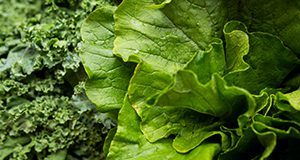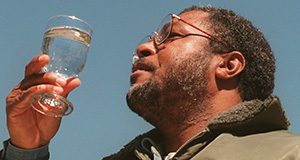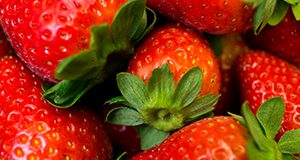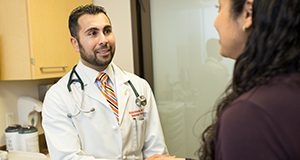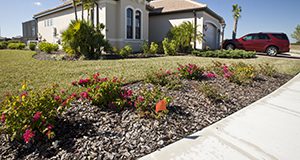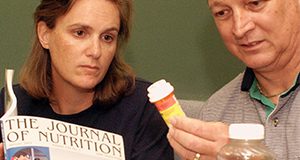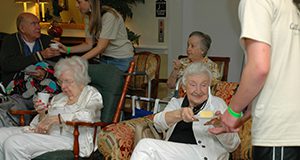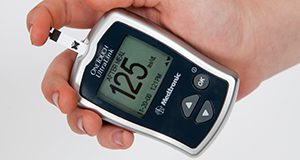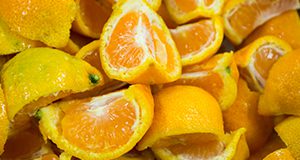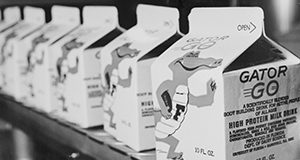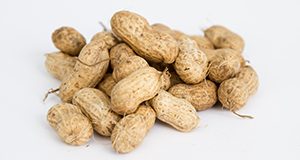Feeding your baby is one of the first things you do as a parent. It is also one of the ways that you develop a relationship with this new family member. When feeding goes well, everyone in the family is happier. This 3-page publication can help you develop a close feeding relationship with your baby. The skills you learn will also help you and your child avoid conflicts over food during the toddler and preschool years. Written by Linda B. Bobroff and Nicole Owens Duffy, and published by the UF/IFAS Department of Family, Youth and Community Sciences, revised March 2019.
http://edis.ifas.ufl.edu/he964
Tag: Linda B. Bobroff
Alimentacion Saludable: Organice Su Plato
Planear sus comidas puede ayudar a controlar las porciones y la cantidad de carbohidratos que usted consume a través del día. Esto es especialmente importante si usted padece de la diabetes o si usted es una persona en alto riesgo de padecer de la diabetes. This 2-page document is the Spanish version of Healthy Eating: Create Your Plate. Written by Jennifer Hillan and Linda B. Bobroff, and published by the UF/IFAS Department of Family, Youth and Community Sciences, revised December 2018.
http://edis.ifas.ufl.edu/fy907
Healthy Living: Monitoring Your Blood Pressure at Home
Do you think your blood pressure may be too high? Have you been diagnosed with high blood pressure? In either case, it is recommended that you monitor your blood pressure at home and get it checked at the doctor's office. This 4-page document discusses how to monitor your blood pressure at home. Written by Linda B. Bobroff, and published by the UF/IFAS Department of Family, Youth and Community Sciences, revised November 2018.
http://edis.ifas.ufl.edu/fy1126
Alimentacion Saludable: Liquidos
Más de la mitad del peso del cuerpo humano adulto es agua. El agua transporta nutrientes a las células en nuestros cuerpos y remueve los residuos. Nuestros cuerpos no podrían funcionar sin una fuente de agua adecuada. This 2-page fact sheet discusses the importance of water, effects of dehydration, implications for older persons, suggested fluid intake, and ways to include more water in one’s diet. It is the Spanish version of Healthy Eating: Fluids. Written by Linda B. Bobroff, Luisa Oliver-Cordero, and Emily Minton, and published by the UF/IFAS Department of Family, Youth and Community Sciences, revised September 2018.
http://edis.ifas.ufl.edu/fy071
Alimentacion Saludable: Bebidas saludables
Los batidos son una manera deliciosa de incorporar más frutas y nutrientes a su dieta. This 2-page fact sheet provides tasty recipes for shakes and smoothies. It is the Spanish version of Healthy Eating: Drink to Your Health. Written by Jennifer Hillan, Emily Minton, and Linda B. Bobroff, and published by the UF/IFAS Department of Family, Youth and Community Sciences, revised September 2018.
http://edis.ifas.ufl.edu/fy697
Alimentacion saludable: Guia de almacenamiento de alimentos
Si usted no compra alimentos a menudo, probablemente debería comprar alimentos que duren hasta su próxima visita a la tienda. Para ayudarle a aprender que tanto comprar, aquí tenemos algunas guías para almacenar alimentos perecederos. This 2-page fact sheet is a major revision that provides food storage tips. Written by Jennifer Hillan and Linda B. Bobroff, and published by the UF/IFAS Department of Family, Youth and Community Sciences, revised July 2018.
https://edis.ifas.ufl.edu/fy700
Breast Cancer: When the Woman You Love Has Breast Cancer
For the person with breast cancer, a diagnosis causes her life to suddenly and dramatically change. As treatment progresses, the patient has a multitude of doctor visits, procedures, and often support groups to keep her busy and focused. Her partner's challenges are also significant, but unfortunately they are frequently overlooked. This 4-page fact sheet is the second document in a 12-part series on breast cancer. It provides perspectives and suggestions for persons who are accompanying a woman through breast cancer treatment. Written by Martha C. Monroe, Barbara F. Shea, and Linda B. Bobroff, and published by the UF/IFAS Department of Family, Youth and Community Sciences, revised April 2018.
http://edis.ifas.ufl.edu/fy896
Prevencion de Caidas: Soluciones para su hogar
Miles de adultos mayores se caen en su casa cada año. A medida en que uno envejece, su casa puede presentar algunos retos. Pero usted puede hacer cambios para que su casa cumpla con sus necesidades mientras reduce el riesgo de las caĺdas. This is the Spanish-language version of FCS2228/FY734, Fall Prevention: Solutions for Your Home. This 3-page document provides tips to help you reduce the risk of falls at home. Written by Leigh Ann Martin, Emily Minton, and Linda B. Bobroff, and published by the UF/IFAS Department of Family, Youth and Community Sciences, revised January 2018.
http://edis.ifas.ufl.edu/fy858
Vida Saludable: Use sus medicinas de una manera segura
Las medicinas nos pueden hacer sentir mejor y mejorar nuestra salud, pero si no las usamos correctamente nos pueden hacer sentir peor o hasta causarnos problemas de salud mayores. This is the Spanish-language version of FCS8594/FY667, Healthy Living: Use Your Medicines Safely! This 5-page document provides tips to help you use your medicines safely. Written by Paulina Wittkowsky, Linda B. Bobroff, and Emily Minton, and published by the UF/IFAS Department of Family, Youth and Community Sciences, revised February 2018.
http://edis.ifas.ufl.edu/fy668
Elder Nutrition
Older Floridians, their families, and communities face many issues related to aging. This 8-page fact sheet focuses on the way aging affects nutrition and diet, and choices that older adults can make to improve or maintain their health and well-being as they age. Written by Linda B. Bobroff and Martie Gillen, and published by the UF/IFAS Department of Family, Youth and Community Sciences, revised March 2018.
http://edis.ifas.ufl.edu/fy628
Symptoms and Treatment of Low Blood Glucose
Low blood glucose, also called hypoglycemia, can be life-threatening for people with diabetes. It can be caused by eating too little food, taking too much insulin or other diabetes medication, or being extra active. If left untreated, low blood glucose can progress to diabetic coma. Everyone with diabetes needs to know the symptoms of low blood glucose so they can take action right away. This 2-page fact sheet discusses preparation, symptoms, and treatment. Written by Linda B. Bobroff, and published by the UF/IFAS Department of Family, Youth and Community Sciences, revised February 2018.
http://edis.ifas.ufl.edu/fy521
Nutrition for Health and Fitness: Fiber in Your Diet
Whether you call it dietary fiber, fiber, or roughage, eating a diet rich in this food component is good for your health. This 8-page fact sheet provides tips on how to include foods with fiber in your diet. Written by Linda B. Bobroff, and published by the UF/IFAS Department of Family, Youth and Community Sciences, revised March 2018.
http://edis.ifas.ufl.edu/he697
Nutrition for Health and Fitness: Sodium in Your Diet
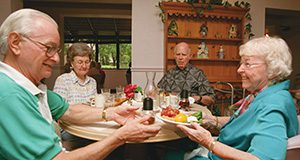
The foods you eat and the way you prepare and serve them affect the amount of sodium in your diet. This 5-page fact sheet Written by Linda B. Bobroff, and published by the UF/IFAS Department of Family, Youth and Community Sciences will help you evaluate your sodium intake.
edis.ifas.ufl.edu/he696
Alimentacion Saludable: El calcio
El calcio es el mineral principal que se encuentra en nuestros huesos y dientes. Nosotros necesitamos calcio para el buen funcionamiento de los músculos y los nervios. Written by Linda B. Bobroff, and published by the UF/IFAS Department of Family, Youth and Community Sciences, revised January 2018.
http://edis.ifas.ufl.edu/fy069
Vida Saludable: Los alimentos pueden afectar sus medicamentos
Algunos alimentos pueden afectar la manera en que los medicamentos con prescripción o sin prescripción médica funcionan, ya sea retardando, disminuyendo o aumentando la cantidad del medicamento que el cuerpo absorbe. Esto puede ocasionar efectos secundarios peligrosos y no deseados. Written by Paulina Wittkowsky and Linda B. Bobroff, and published by the UF/IFAS Department of Family, Youth and Community Sciences, revised January 2018.
http://edis.ifas.ufl.edu/fy677
Reducing Your Risk for Diabetes: A Resource Guide
Many free resources are available to help people of all backgrounds lead healthier lives and reduce their risk for diabetes. This 3-page fact sheet is a major revision that provides resources to help people take steps to improve their health. Written by Linda B. Bobroff, and published by the UF/IFAS Department of Family, Youth and Community Sciences, revised February 2018.
http://edis.ifas.ufl.edu/fy933
Facts About Vitamin B12
Vitamin B12 works with folate, another B vitamin, to make DNA, our body's genetic material. B12 is needed for proper formation of red blood cells and protection of nerve cells. This 2-page fact sheet discusses vitamin B12 requirements, ways to get enough vitamin B12, and effects of vitamin B12 deficiency. Written by Linda B. Bobroff, and published by the UF/IFAS Department of Family, Youth and Community Sciences, revised January 2018.
http://edis.ifas.ufl.edu/fy214
Healthy Living: Changing Your Lifestyle to Improve Your Blood Pressure
Most people know that high blood pressure can often be improved by making smart dietary choices and choosing foods lower in sodium. But did you know there are other ways to help control high blood pressure and even prevent it? This 4-page fact sheet is a major revision that discusses four lifestyle changes that can help you keep blood pressure down. Written by Karla P. Shelnutt and Linda B. Bobroff, and published by the UF/IFAS Department of Family, Youth and Community Sciences, revised February 2018.
http://edis.ifas.ufl.edu/fy1129
Facts About Folate
Everyone needs folate. It is especially important for women who can become pregnant. Pregnant and nursing women, growing children, and older adults also need plenty of folate. This 2-page fact sheet is a major revision that discusses folate requirements, ways to meet those requirements, and possible effects of folate deficiency. Written by Linda B. Bobroff, and published by the UF/IFAS Department of Family, Youth and Community Sciences, revised February 2018.
http://edis.ifas.ufl.edu/fy186
Healthy Living: Diabetes Care During Sick Days
When you are sick, your blood glucose levels are harder to regulate. Being sick often causes blood glucose levels to rise, which can lead to serious health conditions. It is important to have a plan to manage your sick days so you are prepared ahead of time. This 3-page fact sheet is a major revision that provides information on the ways illness can affect blood glucose, suggestions for easy foods to have on hand, and a checklist to use when deciding whether a call to a doctor is in order. Written by Jennifer Hillan, Emily Minton, and Linda B. Bobroff, and published by the UF/IFAS Department of Family, Youth and Community Sciences, revised February 2018.
http://edis.ifas.ufl.edu/fy884

